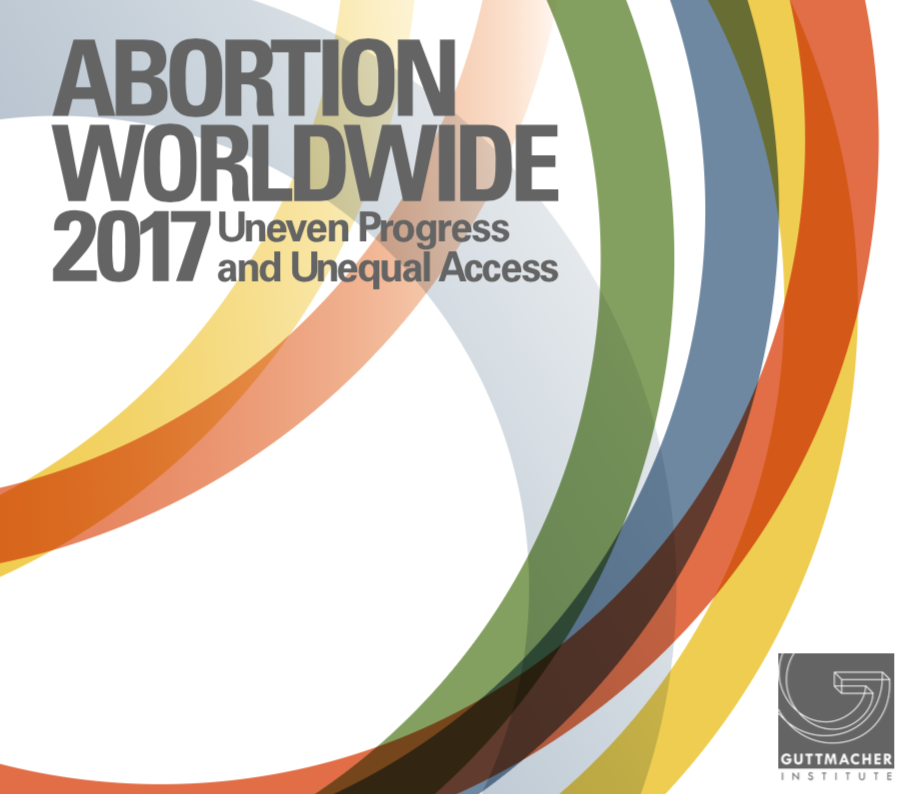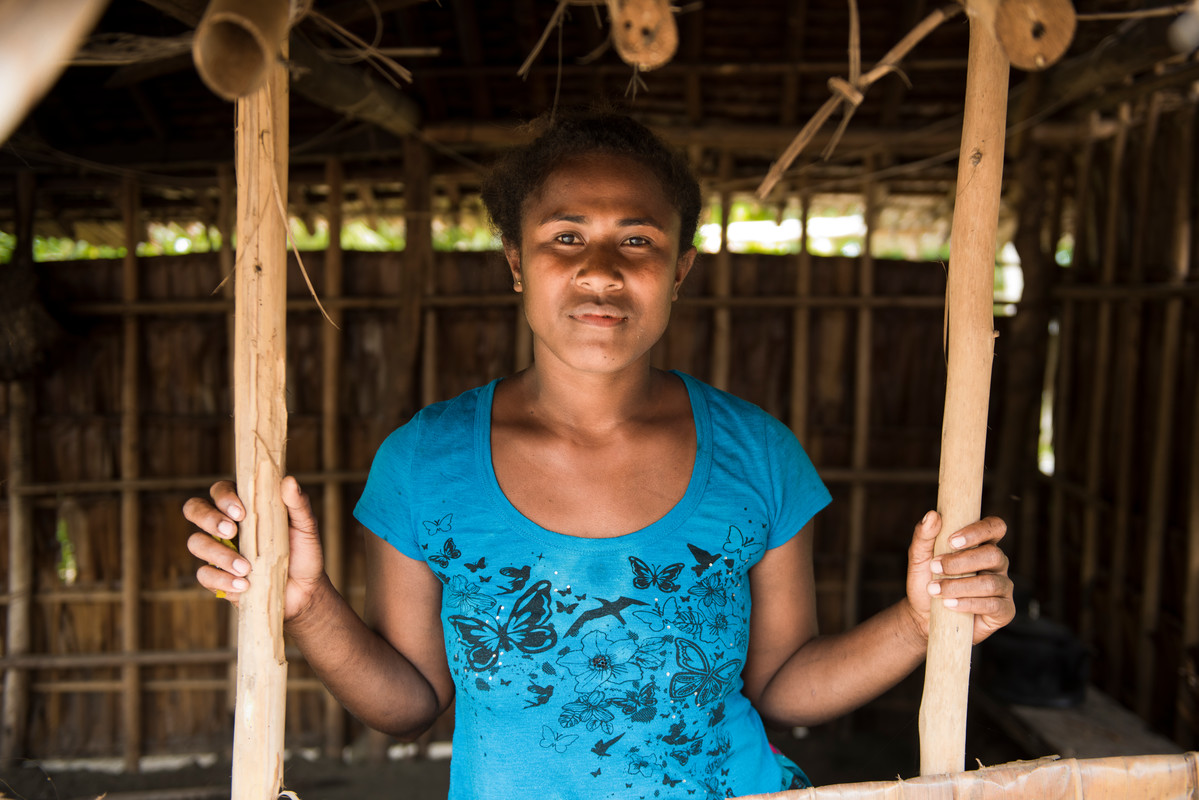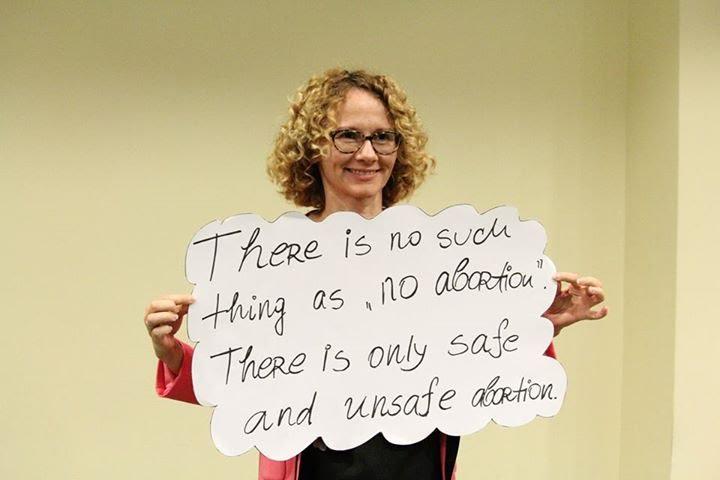
| 21 March 2018
IPPF welcomes the release of Guttmacher's report on abortion
IPPF welcomes the release by the Guttmacher Institute of a new report highlighting ongoing disparities in abortion rates and access to safe abortion care between developing and developed regions. These data provide valuable information for organizations like IPPF working to improve access to sexual and reproductive health and rights. A key finding from the study is that, although the global annual abortion rate has fallen between 1990-1994 and 2010-2014, a larger decline occurred in developed countries (where abortion is generally legal and available), but rates have not changed significantly in the developing world, where abortion laws are often restrictive. This demonstrates that restricting access to safe legal abortion does not reduce the number of abortions but rather pushes abortions underground, leading to risks to women’s health and lives. Legality alone does not guarantee access. Governments need to ensure policies are implemented and guarantee a favourable environment where all women - regardless of their ability to pay, age or marital status - can access safe abortion care free of stigma and discrimination. While abortion is a very safe procedure when done in accordance with recommended guidelines, health complications from unsafe abortion - while less serious due to increased access to post-abortion care and increased availability of misoprostol - continue to affect millions of women each year. Developing regions also continue to be disproportionally affected by unsafe abortion, with nearly all deaths due to unsafe abortion occurring in developing countries, the highest number occurring in Africa. As of 2014, at least 22,800 women still die each year worldwide from complications of unsafe abortion; and 6.9 million women in developing regions are treated for complications from unsafe abortions. Very importantly, the study outlines how high levels of unmet need for contraception contribute to higher rates of unintended pregnancy in developing regions, the main reason that women undergo abortion. This shows the relevance of organizations like IPPF working to prevent unintended pregnancy through modern contraceptive services, promote comprehensive sexuality education and eliminate sexual violence and coercion. At the same time, IPPF recognizes that there will always be a need for safe abortion services and will we continue to increase access to safe abortion care through our service delivery outlets while advocating for the decriminalization and de-stigmatization of abortion. Manuelle Hurwitz, Director of Institutional Delivery, IPPF

| 11 July 2017
IPPF lauds news commitments made at London FP Summit
The International Planned Parenthood Federation has praised the Governments, private companies and partner organisations making family planning commitments at today’s London Summit. Speaking at the summit, IPPF Director General Tewodros Melesse said: “IPPF welcomes the wonderful and generous commitments being made today by Governments, civil society and the private sector. As the largest provider of family planning services in the world, IPPF’s members know that access to family planning transforms the lives of women and girls. That is why it is vital that the 214 million women and girls around the world who want contraceptive care but are currently denied it must be given access to it. We know that tens of millions of women and young girls are forced into pregnancy every year because they do not have access to the contraceptive care they want and need. Reproductive rights exist only on paper without supplies. Without generous additional support the world’s poorest women and girls are asked to try to bridge a contraceptive funding gap from their own pockets – something they simply cannot do.” Today’s FP Summit is co-hosted by the UK Department for International Development (DFID), The Bill and Melinda Gates Foundation and the United Nations Population Fund (UNFPA). Mr Melesse praised the UK Government for its announcement of an increase in funding for family planning of £45m a year for five years, and the Bill and Melinda Gates Foundation for its announcement of an additional £375m over four years for global family planning. Mr Melesse said: “These huge additional increases in funding from DFID and The Bill and Melinda Gates Foundation, and the commitments made by so many other governments, private companies and partner organisations today show we are all united in our determination to reach those woman and girls currently underserved and overlooked. “IPPF has published a new report today which says that more women and girls than the entire population of Germany will find themselves forced into pregnancy just this year because they cannot get the contraceptive care they want and need. The vast majority of them are in developing countries. IPPF’s members work tirelessly to reach the poorest and most marginalised in these societies – we will build on the commitments of the London Summit today to reach even more of them than ever.” Join our campaign: ask for universal access to contraception!

| 23 June 2017
Small grants for youth-led projects tackling abortion stigma
IPPF is committed to tackling abortion stigma at the individual, community, institutional and legal levels. This year, thanks to the Packard Foundation, we are pleased once again to be offering funding for youth-led projects tackling abortion stigma. These grants (of up to $2000 USD) are available for young people (under 25) working or volunteering in IPPF Member Associations. Abortion stigma will look different and have different solutions in every community. If you’re passionate about reproductive rights and have an idea for a project to tackle abortion stigma in your community, please download the application form and guidance. The deadline for applications is Sunday 16 July 2017 and all applications will need to be approved by Member Associations before being sent to [email protected] English Application Form Guidance French Application Form Guidance Spanish Application Form Guidance See examples of inspiring projects we have supported in the past.

| 30 March 2017
IPPF responds to the announcement of funding from the Government of Japan
IPPF’s Director General, Tewodros Melesse, has paid tribute to the Government and people of Japan, following the announcement that Japan will support the provision of sexual and reproductive health and rights (SRHR) for 2017. The Japanese Government has announced that it will contribute approximately 3.1 billion yen (roughly $28 million) to IPPF and the United Nations Population Fund (UNFPA) in annual support. Mr Melesse said: “IPPF is grateful for Japan’s continuing support to SRHR through funding IPPF and UNFPA. Particularly in the current negative climate around SRHR, Japan’s expression of its strong will to continue its support for SRHR is warmly welcome.” “Japan’s long-lasting support for IPPF and for sexual and reproductive health care and rights has always been appreciated. These funds will help IPPF member associations around the world mitigate the cuts in funding we are seeing from some other sources. This will help protect health and save the lives of many people, especially women and girls.” Mr Melesse added: “We agree completely with the Government of Japan when it says that the provision of services relating to sexual and reproductive health and rights is essential for realizing universal health coverage (UHC), that ensures affordable access to basic health services for all whenever they need them throughout their lives. This is stated clearly in the Basic Design for Peace and Health, Japan’s global health policy and one of the outcome documents of the G7 Ise-Shima Summit, as well as in an outcome document from the The World Assembly for Women in Tokyo 2016 (WAW), the Third United Nations World Conference on Disaster Risk Reduction and the Sixth Tokyo International Conference on African Development (TICAD VI). IPPF would like to congratulate Japan’s leadership and commits to working closely with the Government of Japan to make a real difference to the lives of women, men and young people in around world and to achieve the Strategic Development Goals.” IPPF received approximately $1.13m from Japan in early 2017 for its activities targeted to Syrian refugees and internally displaced people, and will receive funding of $7.76m which was recently approved by the Japanese Parliaments.
| 27 March 2017
Against tough odds, advances on women’s economic rights made at the United Nations 61st Commission on the Status of Women
Over the last two weeks, governments from across the world came together at the United Nations 61st Commission on the Status of Women to negotiate an intergovernmental agreement on women’s economic empowerment in the changing world of work. The Commission adopted Agreed Conclusions that, for the first time, make a direct and explicit link between women’s economic empowerment and their sexual and reproductive health and reproductive rights. Disappointingly, however, the references to sexual and reproductive health and reproductive rights were qualified by previous UN agreements, and comprehensive sexuality education was omitted entirely from the Agreed Conclusions. Against a climate of looming cuts to UN agencies, the re-enactment and expansion of the Global Gag Rule by the US government, and shifting geopolitical power dynamics, this year's Commission was more concerned with finding the “middle ground” and in this context we focused on defending historically hard fought gains on the area of sexual and reproductive health and rights. This was the first time the Commission discussed women’s economic rights; they made advances through the inclusion of International Labor Organization conventions and declarations within the Agreed Conclusions which reaffirmed women’s rights to decent work and rights at work. IPPF welcomes the recognition of the disproportionate share of unpaid care and domestic work that women shoulder, and the Commission’s call for governments to reduce and redistribute this work through public services, labour and social protection and through affordable child care and care services. The Agreed Conclusions also contained a historic win for the rights of indigenous women and girls, with the Commission calling on governments to respect and protect indigenous women’s traditional and ancestral knowledge, and address the multiple and intersecting forms of discrimination and violence that they face. We also saw progress on the issue of ending violence and harassment against women in the world of work; the Commission prioritized strengthening and enforcing laws and policies to this effect. Countries expressed support for sexual and reproductive rights at the adoption session of the Agreed Conclusions. Both the Spanish and French delegations, speaking on behalf of the European Union, upheld their longstanding role as champions of our issues, and reaffirmed sexual and reproductive rights as a prerequisite for women’s economic empowerment and called for even stronger language on human rights within this context. The statement on behalf of Latin American delegates highlighted their efforts throughout the negotiations to strengthen references to human rights, all forms of discrimination and violence against women and girls, and sexual and reproductive health and rights. In their statement, the US delegation, despite combatively voicing their opposition to abortion rights, did express regret that the final text did not mention some of the groups most vulnerable to discrimination, including on the basis of sexual orientation and gender identity, race and color. They welcomed references to strengthening of social protection systems “without discrimination of any kind.” Despite unprecedented moves to limit civil society’s access to the UN in the final week of the negotiations, the Chair of the Commission, H.E. Mr. Antonio de Aguiar Patriota, in his closing remarks, emphasised the importance of the inclusion of a vibrant civil society at the Commission on the Status of Women. Throughout the process of the negotiations, we saw supportive governments, including new voices from across different regions such as the Africa Group and Arab Group, put forward progressive language on issues such as the sexual and reproductive health and rights of women, unpaid care work, work-family balance, violence against women in the workplace and social norms. It is crucial that countries continue to reaffirm these rights as necessary for women’s economic empowerment. We must continue to champion these voices and harness this support at future Commissions, demonstrating that sexual and reproductive health and rights are essential to the realization of the full range of women’s and girl's’ human rights. Only then, will we ensure a strong set of global standards that respect, protect and fulfill the human rights of women and girls. Only then, can we ensure that the lives of women and girls across the world continue to improve.

| 09 March 2017
The 61st Commission on the Status of Women: ‘women’s economic empowerment in the changing world of work’
The Commission on the Status of Women (CSW) is a functional commission of the United Nations Economic and Social Council (ECOSOC). It is the principal global policy-making body dedicated exclusively to gender equality and advancement of women. Every year, representatives of member states gather at United Nations Headquarters in New York to evaluate progress on gender equality, identify challenges, set global standards and formulate concrete policies to promote gender equality and women's empowerment worldwide. This year’s priority theme of the CSW is ‘women’s economic empowerment in the changing world of work’. IPPF is working with partners to make sure that sexual and reproductive health and rights are considered central to women’s economic empowerment within negotiations at the CSW. "Sexual & reproductive health&rights shape women’s chances to access and stay in decent work" @PreeSundaram, IPPF https://t.co/IJWikHVSrB #CSW61 — IPPF Global (@ippf) March 13, 2017 Read our latest briefing to find out why sexual and reproductive health and rights are central to women’s economic empowerment. See the full list of IPPF hosted events at the Commission on the Status of Women (CSW) 61. WANT TO GET INVOLVED? SUBSCRIBE NOW TO GET UPDATES FROM IPPF SUPPORT OUR WORK WITH A DONATION







